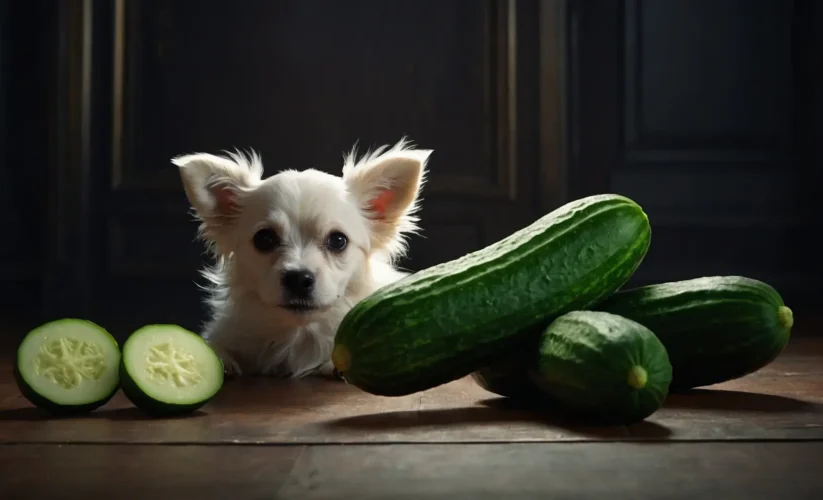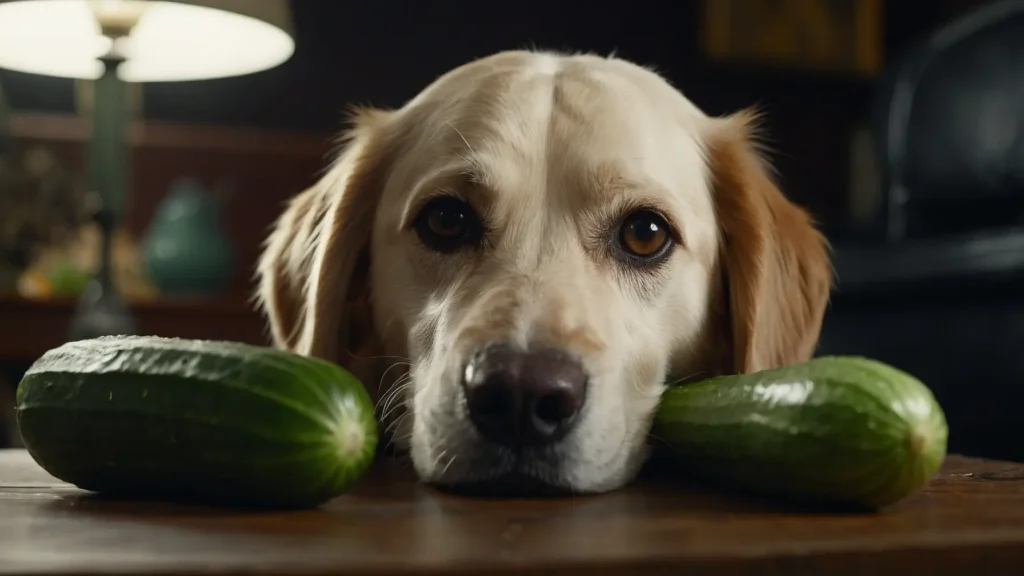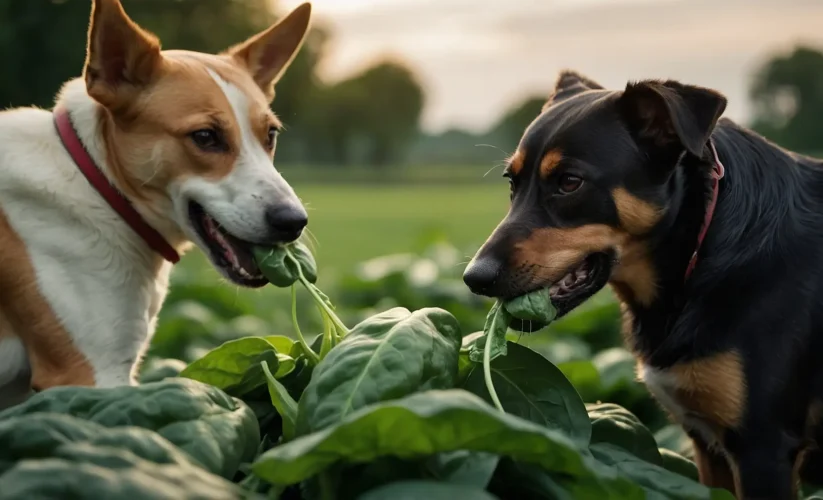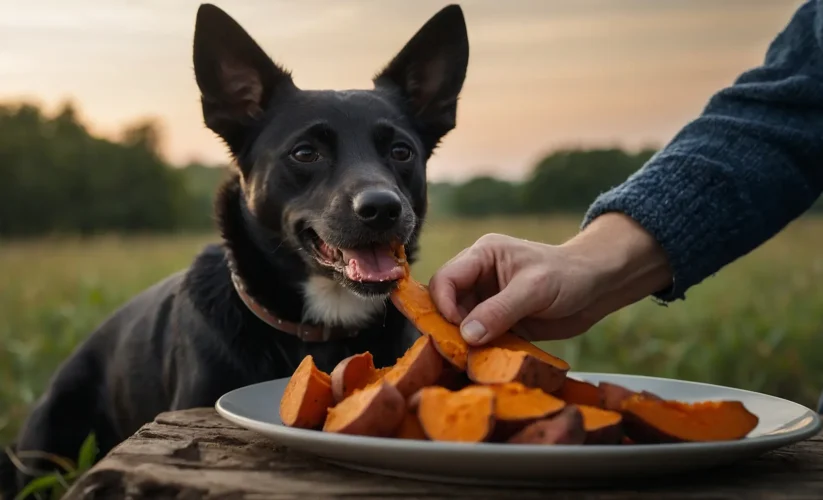Can dogs eat Cucumbers

In the world of pet ownership, ensuring the health and happiness of our furry companions is a top priority. This includes making informed decisions about their diet, which can sometimes be a complex topic, especially when considering the safety of feeding them human foods. “Can dogs eat cucumbers?” emerges as a common query among dog owners. Cucumbers, a staple in many households, are often a topic of curiosity. Known for their crisp texture and hydrating properties, cucumbers might seem like a refreshing treat for dogs, especially on hot days. But, as responsible pet owners, we must delve deeper into understanding whether cucumbers are indeed a safe and beneficial addition to our dog’s diet. This blog post aims to provide a thorough examination of cucumbers in the context of canine nutrition, alongside a brief look at other common vegetables, to help dog owners make well-informed dietary choices for their beloved pets.
Is Cucumbers Good for Dogs?
Cucumbers are not only safe for dogs to eat but also offer several health benefits, making them a fantastic treat in moderation. Firstly, cucumbers are low in calories, which is ideal for maintaining a healthy weight in dogs, especially those prone to obesity. Additionally, their high water content can aid in hydration, particularly beneficial during warmer months.
Cucumbers are also rich in vitamins K, C, and B1, along with potassium, copper, magnesium, and biotin. These nutrients contribute to the overall health of a dog by supporting immune system function, joint health, and energy levels. Furthermore, the crunchy texture of cucumbers can help in cleaning your dog’s teeth, aiding in dental health by reducing plaque and freshening breath.
However, it’s essential to introduce cucumbers into your dog’s diet gradually to monitor for any adverse reactions, such as gastrointestinal upset. Serving cucumbers in small, bite-sized pieces can prevent choking hazards and ensure that your dog can enjoy this crunchy treat safely.
Is Cucumbers Bad for Dogs?
While cucumbers themselves are not inherently bad for dogs, there are circumstances under which they could pose risks. The primary concern is the potential for gastrointestinal upset, particularly in dogs with sensitive stomachs. Symptoms such as diarrhea or vomiting can occur if a dog eats too much cucumber at once, especially if they are not used to it.

Another consideration is the choking hazard presented by larger pieces of cucumber, especially for small dogs. It’s crucial to cut cucumbers into manageable pieces that your dog can easily chew and swallow.
Moreover, the introduction of any new food into your dog’s diet should be done cautiously to avoid any adverse reactions. While cucumbers are generally safe, they should be given as a treat and not a significant part of the dog’s diet, ensuring that the dog’s nutritional needs are primarily met through a balanced, high-quality dog food.
Are Other Vegetables Like Spinach, Peas, and Mushrooms Safe For Dogs?
Expanding your dog’s diet to include a variety of vegetables can provide additional nutrients and variety, but it’s essential to know which are safe and beneficial.
- Spinach is rich in vitamins A, C, and K, as well as iron and antioxidants. However, it contains oxalic acid, which can lead to kidney problems in large amounts. Therefore, spinach should only be offered in small, occasional servings.
- Peas are generally safe and healthy for dogs, providing vitamins, minerals, and fiber. They can be a good source of protein as well. However, it’s best to avoid canned peas due to added sodium and serve them fresh or frozen instead.
- Mushrooms can be tricky. While the common store-bought varieties are safe for dogs in moderation, many wild mushrooms are toxic. Therefore, it’s safest to avoid feeding mushrooms unless you are entirely sure of their safety and suitability for canine consumption.
Each vegetable has its unique set of nutrients and potential risks, so moderation and proper preparation are key when incorporating these into your dog’s diet.
Final Thoughts
Cucumbers, along with selected other vegetables, can be a healthy addition to your dog’s diet when offered appropriately. They provide hydration, essential nutrients, and can even assist in weight management and dental health. However, like any treat, cucumbers should be given in moderation and as part of a balanced diet.
Understanding the dietary needs and restrictions of your canine friend is crucial in ensuring their long-term health and happiness. By introducing new foods slowly and monitoring your dog’s response, you can safely expand their diet to include a variety of nutritious foods.
Ultimately, while cucumbers and certain other vegetables can be beneficial, it’s essential to prioritize a high-quality dog food that meets all of your pet’s nutritional requirements. Always consult with your veterinarian before making significant changes to your dog’s diet, especially if your dog has specific health concerns or dietary needs. This approach will ensure that your furry friend enjoys a healthy, happy life by your side.










